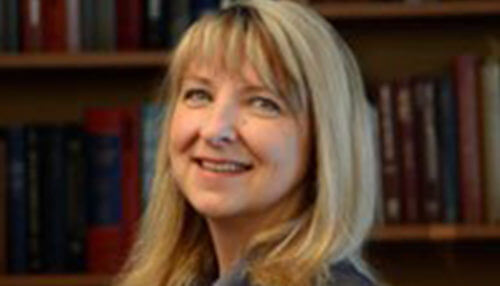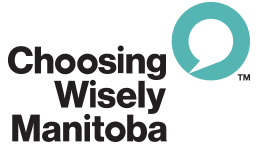Dr. Christine Polimeni

Choosing Wisely is important for the sustainability of health services, not just for my patients, but for all Manitobans. We only have so many resources and I want to ensure we’re allocating tax dollars to the highest value services my patients really need. I am a witness to this on a daily basis, appraising my actions while advocating for the best care for my patients; so I feel a duty to “Choose Wisely” so my patients will get the care they really need, now and into the future.
Communication is critical in making this initiative a reality. Meeting the expectations of our patients needs to be managed in a socially accountable manner by educating and setting a behavioral standard at each clinical encounter. Any day that I can pass this information on to one of my patients is a good day in clinic. Any day that they can carry that sentiment forward to others is an even better day!
Fortunately in my practice, I am starting to see patients who are becoming wise to unnecessary drugs and diagnostics. A great example is the work up for acute lower back pain. This is a great opportunity for a one on one discussion on the topic of unnecessary x-rays, CT’s and MRI’s. I will often ask my patients about their expectations of the outcomes of a specific test. If they request a CT scan, do they worry about the radiation exposure, are they concerned about their condition worsening, what do they think the harm is in delaying an exam, what red flag symptoms should they be aware of? It gets us to the heart of their expectations, and often we can agree that we don’t need to do the test. We can then move onto a management plan, which gives a feeling of satisfaction.
Communication is also moving forward between our medical experts. During our CPD sessions, conversations about social accountability are occurring more frequently. Scientific planning committees are now integrating Choose Wisely tools at many of our educational events and physicians, both new and established, are utilizing these resources that will help support them in their daily clinical encounters. Unfortunately, we don’t get through to every patient, some still advocate for that test or prescription, but the tools that Choose Wisely Manitoba is developing can strengthen our role as “medical expert” and offer us a tool kit to draw from and allow us to further open up those conversations. We will, however need to move beyond the paper reference materials- utilize the waiting room for educating and leverage technology through social media and patient information resources. I believe we can educate on their terms and must influence on our terms.
